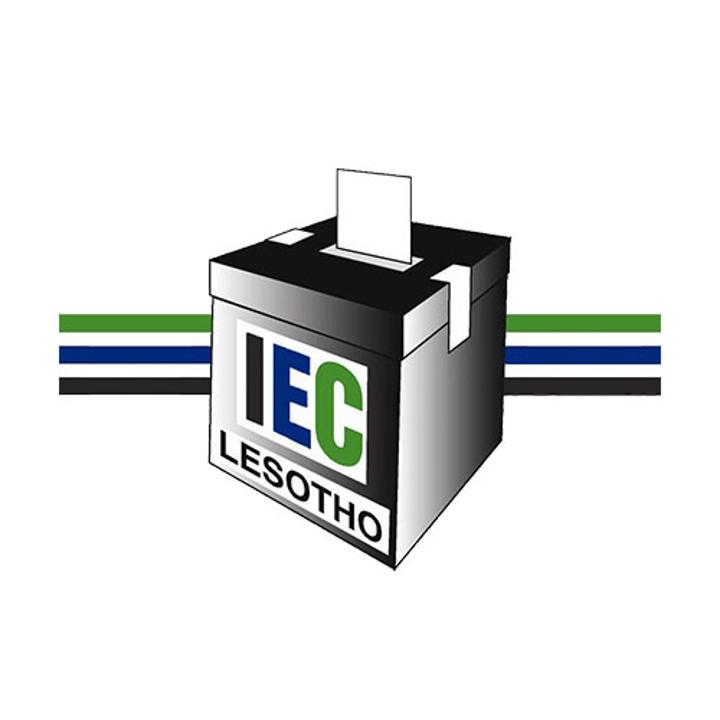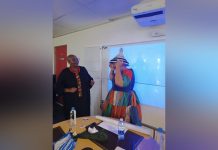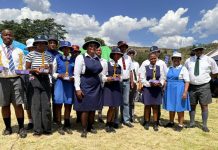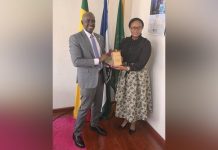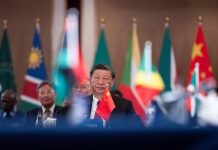Africa-Press – Lesotho. The United Nations Electoral Assistance Division (UNEAD) is in the country to conduct a needs assessment mission in response to the Independent Electoral Commission (IEC)’s invitation as Lesotho gears on for general elections come year 2022.
The entourage, which has been in the country from June 14 to 23 is earmarked to host consultative meetings with a number of key role players such as civil society groups, opposition leaders, heads of churches, IEC and development partners in Lesotho.
Leading the mission is Mr. Akimyemi Adebola, a UNEAD Principal Electoral Officer based in the UN Office at the African Union. Adebola said the unfolding Electoral needs assessment is a response to the invitation received from IEC, in its preparation for next year’s national general elections.
“As a member state to the United Nations, Lesotho is within its rights to request this kind of assessment, and our obligation is to respond positively to such a request hence us being here”, he said.
Adebola further said consultations with strategic parties who play a pivotal role in the national elections was mandatory in order to get information from variable players, including civil society organisations (CSOs) who are at the grassroots and have valuable insights on what unfolds both during and after the elections in Lesotho.
“CSOs are the ears and eyes in the communities and grassroots and it is on the basis of this that it is important to understand what civil society has observed during this time. It is also important to understand what their roles are in the election preparations and to get a sense of where the challenges might be,” he said.
Mr Booi Mohapi of the Catholic Commission for Justice and Peace said some key handicaps to Lesotho’s peace and stability during and post-election is the poor management and administration of the local political parties themselves.
He further lamented the lack of tolerance and respect for democracy within Lesotho’s political parties themselves. Mohapi said instability emanating from within the political parties escalates to affect the stability and the very life of governments in general.
Mohapi further alluded to fiscal and economic benefits of being in government as one pivotal factor that keeps influencing the mood and tone of both pre- and post-electoral tensions in Lesotho.
“Both big and smaller parties have an eye on the small cake; the economic benefits of being in Government in Lesotho.
This will account for why there seems to be peace in the pre-election period, yet the appointments of government post-election ignite strife as parties in the coalition now express displeasure at being sidelined and such can erect a lot of post electoral tensions in the country,” he said.
On behalf of the Lesotho Council of NGOs Ms Lebohang Leeu said the Lesotho Council of NGOs has been playing a critical role in both post and pre-electoral circles in Lesotho. She said voter education has been one of their primary roles.
Leeu said the organisation has to constantly battle politicisation of their voters’ education and that their good intends are often labelled as pro or against one political party or government regime.
Lebohang further said politics in Lesotho still offer less security and a less conducive environment for full and free participation of women in voting.
She said the turf in politics is too rife and poses a lot of security challenges for women who aspire to play a leading role in elections and or political leadership.
The five-fold member team from the United Nations mission team comprised Mr. Ju Song Kim, Political/Electoral Affairs Officer in EAD, Mr. Amit Singhal, Political Affairs Officer from the Central and Southern Africa Division and Mr. Dieudonne Tshiyoyo, Regional Electoral Advisor of UNDP
For More News And Analysis About Lesotho Follow Africa-Press

